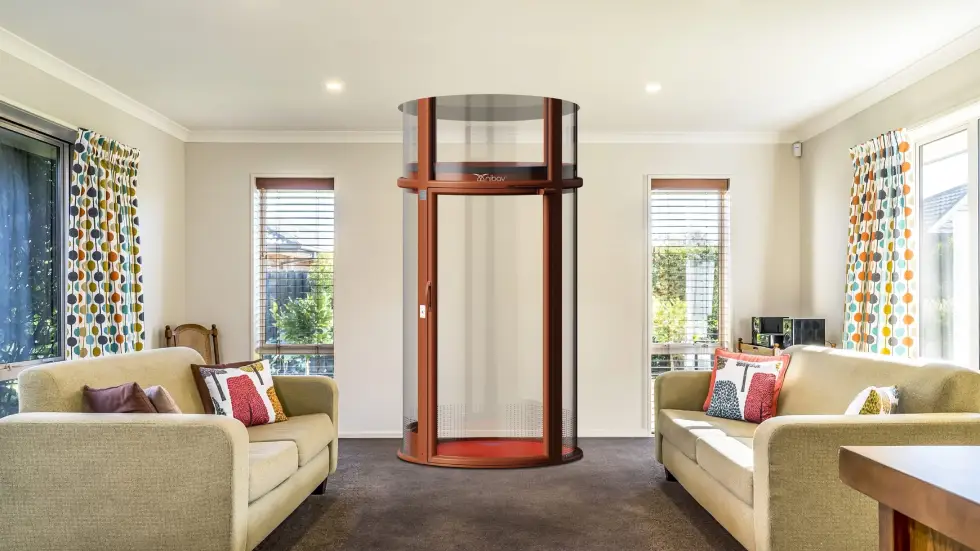Investing in a home elevator not only gives your house a little elegance but also improves access and convenience. Still, you must keep your elevator routinely maintained to guarantee it keeps running as it should. Good residential elevator maintenance increases system lifetime and helps prevent unplanned breakdowns. Together with the expenses involved, this book will closely examine frequent elevator problems, maintenance advice, and the need for regular service.
Problems That Can Occur In Home Elevators
Like any mechanical device, residential elevators may have a variety of problems if improperly maintained. Early identification of such issues helps to avoid later on expensive repairs and safety issues.
One of the most often occurring problems is improper start or stop technique. This may affect the control panel issues, faulty sensors, or the electrical system of the elevator. Should the elevator stop suddenly or show no movement, it is advisable to seek expert examination.
Another issue that might develop is malfunctioning doors. If the doors do not open or shut as expected, misaligned components, malfunctioning door operators, or electrical problems might be responsible. This has to be fixed right away, as it might cause the elevator to malfunction really smoothly.
Last but not least, overheating or circuit problems might bring the elevator down. Should an electrical component overheat, the elevator can go wild or shut down. Professional service and frequent inspections help to avoid such issues.
How to Maintain Your Home Elevator
Regular maintenance is the key to maintaining the operating condition of your house elevator. Several actions may help guarantee that it runs securely and effectively.
First, regular inspections are crucial. Although the elevator’s fundamental operations are within your control, a trained technician should examine the system yearly. Expert evaluation of elevator components, including cables, pulleys, motors, and control systems, will guarantee that everything is operating as it should and handle any possible problems.
Crucially, too is making sure the emergency systems—alarms, lights, and communication tools—are operational. These systems need to be routinely examined as they are meant to guard you in case of an emergency.
Finally, one should monitor the weight capacity of the elevator. Overloading the elevator could strain its mechanical systems and result in malfunction. Follow the advised weight limit always to avoid damage.
The need for regular residential elevator maintenance
Maintaining your home elevator entails not just keeping it functioning but also ensuring reliability, safety, and cost-effectiveness. Frequent maintenance guarantees that the elevator keeps running securely by helping to find any problems before they become major ones.
The first concern in elevator maintenance is safety. Particularly if the equipment is not regularly repaired, an elevator that is not operating should significantly increase user safety risk. Regular maintenance inspections help avoid mishaps by guaranteeing all components are running as they should.
Last but not least, maintaining your house elevator improves the energy economy. Because a smooth-running elevator utilizes less energy, utility expenses are reduced. Because of system inefficiencies, poorly maintained elevators might use more power; hence, regular maintenance is an investment in both performance and cost savings.
Home Elevator Maintenance Costs
Several factors affect the cost of maintaining a residential elevator: the kind of elevator, its age, and the frequency of service needed. Basic inspections and minor maintenance should normally cost between $200 and $500 annually.
Should your system be more complicated—that of a hydraulic or traction elevator—the maintenance expenses might be larger. Often requiring more regular inspections of components like the motor, cables, and hydraulic fluid—which may add to expenses—these systems might
How Often Do Home Elevators Need to Be Serviced?
The age, kind, and use frequency of the elevator determine the frequency of elevator service. Most manufacturers advise a professional examination at least once a year. A specialist will examine all important components—including the control systems, motor, cables, and doors—and handle any problems that could surface during the inspection.
Older elevators or those used more often can need service every six months. Regular inspections keep tiny problems from getting out of hand into expensive fixes.
Apart from yearly or semi-annual maintenance, the elevator’s functioning should be closely watched. Call a professional right away if you detect any unexpected sounds, jerky motions, or failure to start since they might point to underlying problems requiring treatment.
Maintain Your Elevator And Get Discounts
Several elevator maintenance firms provide discounts for customers who register for yearly service contracts or maintenance programs. Frequently offering advantages are these initiatives:
- Priority service: Under a maintenance contract, you may minimize wait times by getting priority during emergency service calls.
- Discounted rates: Several businesses offer discounted labour, tools, or repair prices for clients who promise frequent service.
- Extended warranties: Customers who enrol in maintenance plans might benefit from extended warranties, which can cover labour and components outside of the regular warranty term.
Regular maintenance guarantees not only that your elevator runs well but also helps you save money over time through savings and a longer warranty.
Conclusion
Any house would benefit from a home elevator, but like any mechanical system, it needs regular maintenance to work well. Regular inspections, simple maintenance, and early resolution of problems can help prevent expensive repairs and guarantee that your elevator stays a safe, dependable, and efficient feature of your house.

